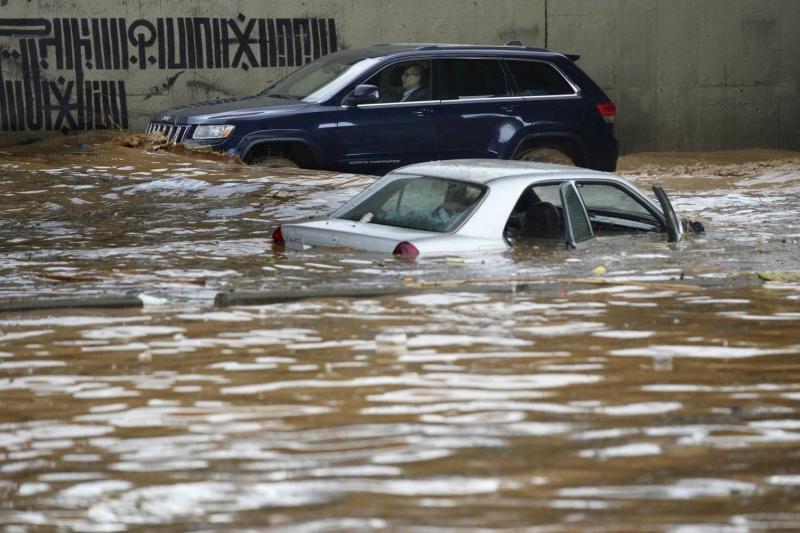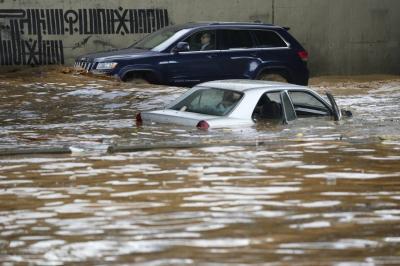As the country enters the holiday season, the holiday has paralyzed the already crippled state administrations that appear helpless in the face of the damage caused by nature over the past two days due to floods and torrential rains. Amid the shifting of responsibilities among the relevant ministries and administrations, citizens once again fall victim to negligence. Although the rainfall was exceptional in its intensity, the responsibility remains with the state, either in the area of cleaning drainage systems or preventing encroachments on them, some of which have turned into dumping grounds for debris, waste, and construction site remnants.
If this is the state of decay in infrastructure and administration, then the "political decay" is no less harmful to the country amid ongoing tensions, leaving essential matters neglected while urgent issues are postponed to the new year. Parliamentary sources described to "Anbaa" electronic newspaper the government's inaction and the neglect of people's lives as "an unforgivable crime," questioning "the punitive steps that Prime Minister Najib Mikati will take against the negligent ministers in his cabinet, who collectively and individually bear responsibility for the damages resulting from the floods and the wrath of nature that struck Lebanon in the past two days." The sources expressed astonishment at "the extent of negligence towards people's lives and livelihoods by those responsible for them," calling for "holding these ministers accountable for their shortcomings and negligence, as what happened cannot go unaddressed regardless of the excuses and justifications. It is illogical to hold nature responsible for what occurred; if this disaster had happened in any country other than Lebanon, all those negligent in fulfilling their duties would have faced prosecution to serve as a lesson to others."
For her part, MP Najat Aoun described the government's and the relevant ministers' failures in a talk with "Anbaa" electronic newspaper as "criminal negligence that is no less severe than the port explosion," questioning "by what right are people subjected to such humiliation while the ministers responsible for the disaster shift blame among themselves." She held Minister of Energy Walid Fayad and Minister of Public Works Ali Hamieh responsible for what happened "because they are in the same government, and not each one of them is acting as if they are running a state at the expense of the other." It is unacceptable to use the argument that what occurred was due to the wrath of nature. Rain falls in every country in the world, not just in Lebanon, and floods occur, but there are governments and officials who take proactive steps to mitigate potential disasters before they happen, and in cases of negligence and shortcoming, the responsible officials are held accountable.
MP Aoun highlighted "this deliberate negligence every winter season," considering what happened to be "an obvious failure on the part of the government," and asked, "by what right did the Ministers of Public Works and Energy absolve themselves of their responsibilities?" She confirmed that "the change MPs will continue to follow up on the matter and hold the negligent ministers accountable, but the problem lies in the absence of a President of the Republic, as a minister can claim he is resigned and say that you, as MPs, need to elect a president to restore order."
Because citizens have grown accustomed to a lack of accountability and unresolved issues, they are left with only the hope that the natural disaster that befell Lebanon will awaken the consciences of the obstructing parties, bringing everyone together on common ground to elect a President of the Republic and reconstitute authority before the floods sweep everyone away.




